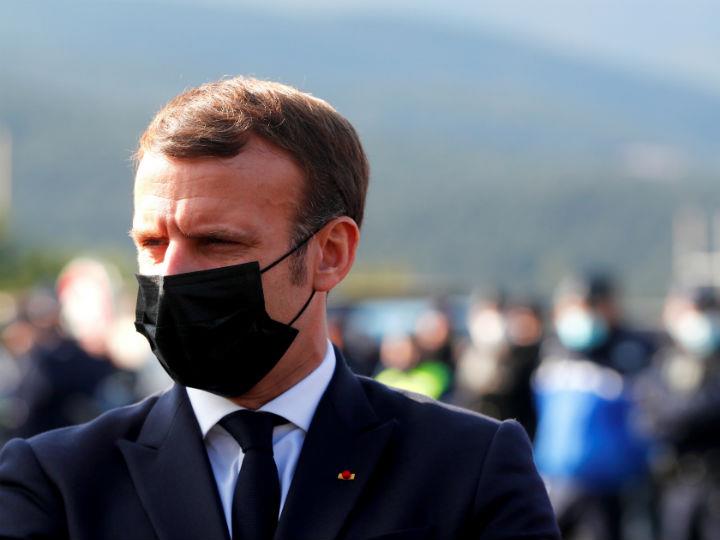by Georgi Gotev
French President Emmanuel Macron gave an unusually long interview to French media over the weekend with an intriguing part about Russia sandwiched between the usual stuff about domestic politics.
Speaking to TF1-LCI, Macron said that France’s outrage over the failed submarine deal with Australia would not lead to France leaving NATO and joining an alliance with Russia.
He also called for a more robust European defence policy while noting that for historical reasons, “France loves Russia” and “Russia loves France”. The French president continued that the countries should come together sooner or later on world affairs, from Lisbon to Vladivostok, to prevent Russia from forging an alliance with China.
Macron recognised that under President Vladimir Putin, Russia has been conducting a revanchist policy versus the West in response to the humiliation Russia suffered with the collapse of the Soviet Union. But in this context, Macron did not mention Ukraine a single time.
Macron recognises that Putin is becoming more and more authoritarian. Still, he remembered with some warmth a trip with Putin to the Gallery of Battles in Versailles in 2017 (which, of course, only depicts French military victories, certainly no defeats).
As France takes over the EU’s rotating presidency, it is worth noting that Macron’s vision of Russia is by no means a mainstream EU position, if there even is such a thing.
Following in the footsteps of Charles de Gaule, Macron sounds like the General’s heir to his domestic audience. But in many EU countries, Macron’s Russian overtures sound bizarre to say the least.
For some reason, the complete version of his interview was later cut down (minus the Russia comments) on the websites of TF1, who conducted the interview and LCI, who initially aired it in full.
Macron’s warmth toward Russia is even more challenging to grasp at a time when Moscow is inflicting significant humiliation on him in Mali. Russian Wagner Group mercenaries, reportedly owned by a man close to Putin, now sanctioned by the EU, could effectively oust French and other European troops from the country.
Moreover, Macron cancelled a planned Christmas visit to the French troops – and a meeting with Assimi Goita, the transitional leader of Mali.
As for Ukraine, Macron’s latest statements at the Eastern Partnership summit put the onus on Kyiv to deliver on the Minsk peace agreement (so far, Moscow and Kyiv have found plenty of excuses not to implement it).
But Ukraine doesn’t want to do its part, which amounts to conducting elections in Donbas and accepting their result, probably giving Russia an official gateway into Ukrainian administration and internal affairs.
Unlike most EU countries, France has particularly complicated relations with the UK. Unlike most EU countries, its relations with the United States are tense. Unlike most EU countries, its relations with Russia are ambiguous.
When a country takes over the EU presidency it is supposed to put its own politics on the backburner. Our educated guess is that these unwritten rules will not apply in the next six months.
*first published in: www.euractiv.com




 By: N. Peter Kramer
By: N. Peter Kramer

